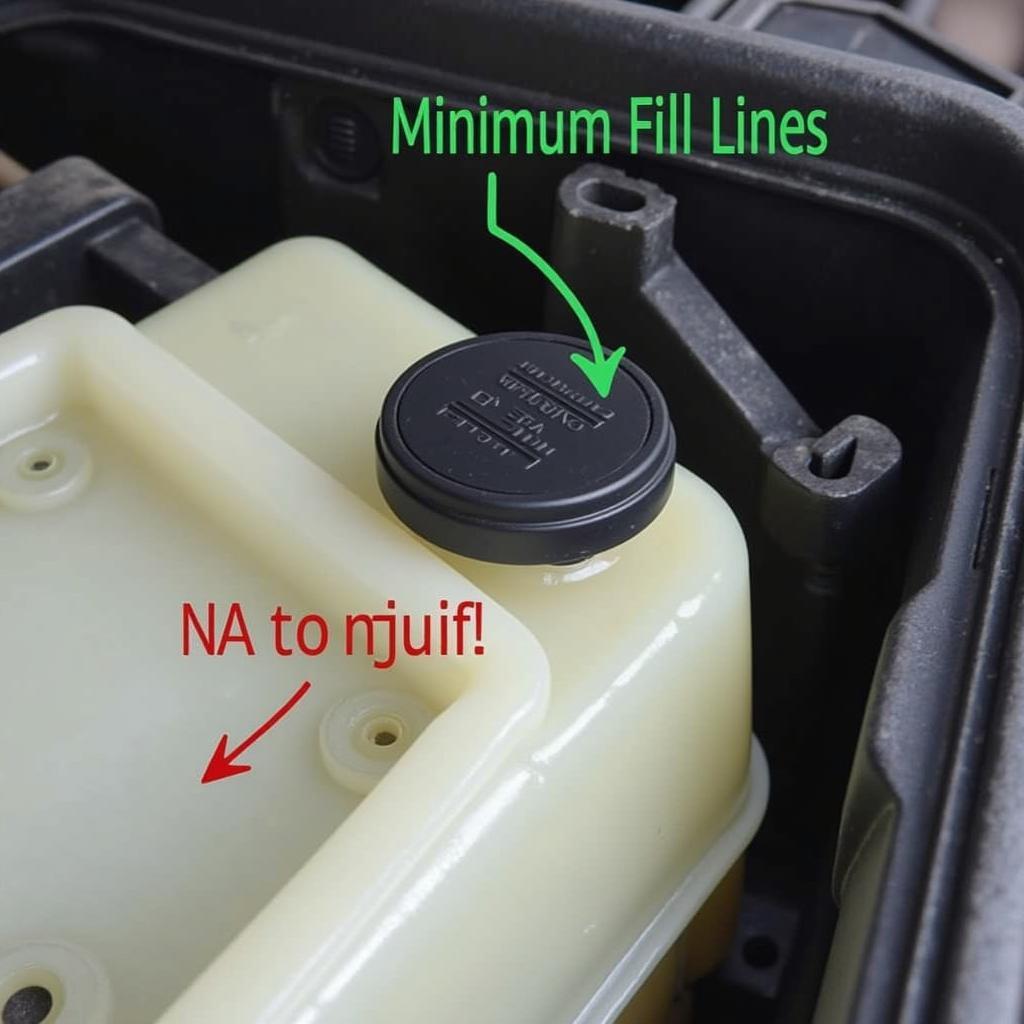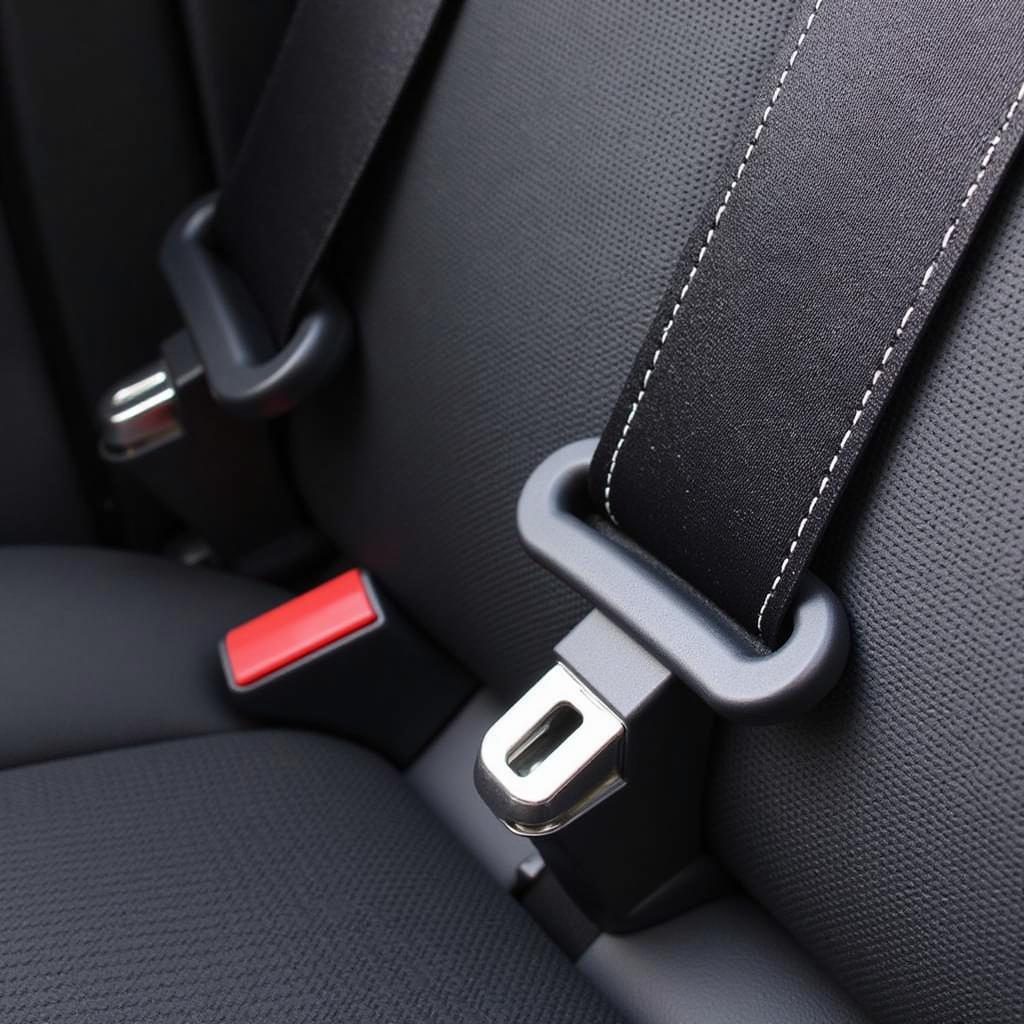A dead car battery is frustrating, but the problem might not be the battery itself. A faulty alternator can often mimic a bad battery, making diagnosis tricky. Knowing how to identify whether you have a bad battery or alternator is crucial for getting your car back on the road. This guide will help you troubleshoot and determine the root cause of your car starting issues.
If your car won’t start or is experiencing electrical issues, the problem often boils down to a bad battery or a failing alternator. Check out this helpful resource on the signs of bad battery or alternator.
Understanding the Battery and Alternator’s Roles
Your car’s electrical system relies on two key components: the battery and the alternator. The battery provides the initial power to start the engine, while the alternator takes over once the engine is running, recharging the battery and powering the car’s electrical systems. A malfunction in either component can lead to starting problems and other electrical issues.
Common Signs of a Bad Battery
- Dim headlights: Weak headlights, especially when idling, can indicate a failing battery.
- Slow engine crank: If the engine cranks slowly or struggles to turn over, the battery may be discharged or nearing the end of its life.
- Clicking sound when turning the key: This clicking is the sound of the starter solenoid trying to engage but lacking sufficient power from the battery.
- Dashboard warning lights: The battery or check engine light can illuminate when there’s a problem with the charging system.
- Swollen battery case: Extreme temperatures can cause a battery to swell, indicating internal damage and the need for replacement.
Common Signs of a Bad Alternator
- Dim or flickering lights: An alternator that’s not charging properly will cause the lights to dim or flicker, especially when accelerating.
- Battery warning light: The battery light on the dashboard is often the first sign of a failing alternator.
- Strange noises: Whining or grinding sounds coming from the engine compartment can indicate a worn-out alternator bearing.
- Electrical issues: Problems with power windows, radio, or other electrical accessories can suggest a failing alternator.
- Burning smell: An overworking or failing alternator can sometimes produce a burning smell due to excessive heat.
Testing Your Battery and Alternator
Several methods exist to test your battery and alternator, including using a multimeter, jump-starting the car, and having it tested at an auto parts store. A simple test involves disconnecting the positive battery cable while the engine is running. If the engine stalls, it suggests a failing alternator. However, this method is not recommended for all vehicles, and it’s often best to have a professional perform the testing. More information can be found regarding the difference between a signs of bad battery vs alternator.
How a Bad Alternator Can Ruin a Battery
A faulty alternator can lead to a drained battery, as it won’t recharge the battery properly. This continuous drain can shorten the lifespan of the battery and eventually lead to its complete failure. For more information, refer to this article: will a bad alternator ruin a battery.
Car Won’t Start After Replacing Battery: Troubleshooting
Sometimes, even after replacing the battery, a car still won’t start. This can be due to various reasons, including a faulty starter, corroded terminals, or even a bad alternator. If you’re encountering this issue, this guide might help: car wont start after replacing battery.
Example Case: Peugeot 107 Battery Drain
A common issue with the Peugeot 107 is battery drain, which can be caused by a faulty alternator, parasitic draw, or other electrical problems. This article provides further insight into this specific problem: peugeot 107 battery drain.
Conclusion
Identifying a bad battery or alternator requires careful observation and testing. Using the information provided in this guide, you can diagnose the problem and take appropriate action. Whether it’s a simple battery replacement or a more complex alternator repair, addressing the issue promptly will get your car back on the road and prevent further electrical problems. Don’t let a bad battery or alternator leave you stranded. Take charge of your car’s electrical health today.



